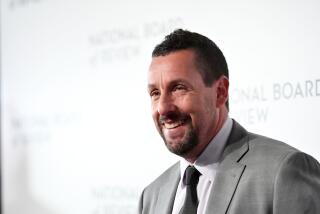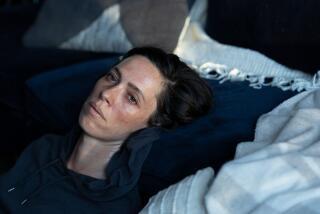Held by Al Qaeda, American journalist Theo Padnos was saved by speaking Arabic language
Theo Padnos, a freelance journalist from Vermont, was captured in Syria by Al Qaeda in 2012. A new documentary by director David Schisgall brings Padnos back to the region to recount his ordeal of beatings, solitary confinements, threats of execution (a noose was put around his neck) and traveling with a jihadist commander and his fighters across the desert.
“Theo Who Lived” is an absorbing tale of how Padnos survived nearly two years as an Al Qaeda hostage by relying on the disarming power of language to bring enemies closer by touching on the humanity, fears, desires, songs and prayers that echo through enmity and war.
Through his fluency in Arabic, a gift most Western journalists do not possess, Padnos, who is guileless to boot, ingratiated himself to men who had vowed to kill him. Bonds formed and allegiances were examined. They spoke of mothers, families, politics, the U.S. atomic bombing of Hiroshima and the treatment of Native Americans. But violence often erupted like unexpected storms; captors once poured water over him while pummeling him with cables and yelling, “Guantanamo, Guantanamo.”
Such rage was interspersed with moments of eerie tenderness that breached cultures and pushed antipathy away. Padnos started writing a novel on paper given to him by friendly guards. They asked him to read the story, especially the romantic parts. One day, a militant with a shattered, bleeding leg was brought into Padnos’ cell. He pleaded with Padnos to rub his leg and sing the Eagles’ song “Desperado.”
“I would sing to him and at those moments he was not a crazy suicidal jihadist,” said Padnos. “He was just a normal guy who loved attention and loved being treated affectionately.”
Padnos, who has a gripping screen presence, is not naive. He has scars and memories that will never fade. He watched on TV in captivity the beheading of journalist James Foley by the Islamic State. But after almost two years of war and death, he concluded that dangerous ideologies are defeated not by guns but by those things that connect us. After he was freed, he put his Arabic to use by soothing Syrian refugees washing up on Greek shores.
“I came here to volunteer and to welcome them and to give them tea,” he said, standing next to a boat of the dispossessed. “That’s what I’m doing. It makes me happy.”
See the most-read stories this hour »
Twitter: @JeffreyLAT
More to Read
Only good movies
Get the Indie Focus newsletter, Mark Olsen's weekly guide to the world of cinema.
You may occasionally receive promotional content from the Los Angeles Times.







